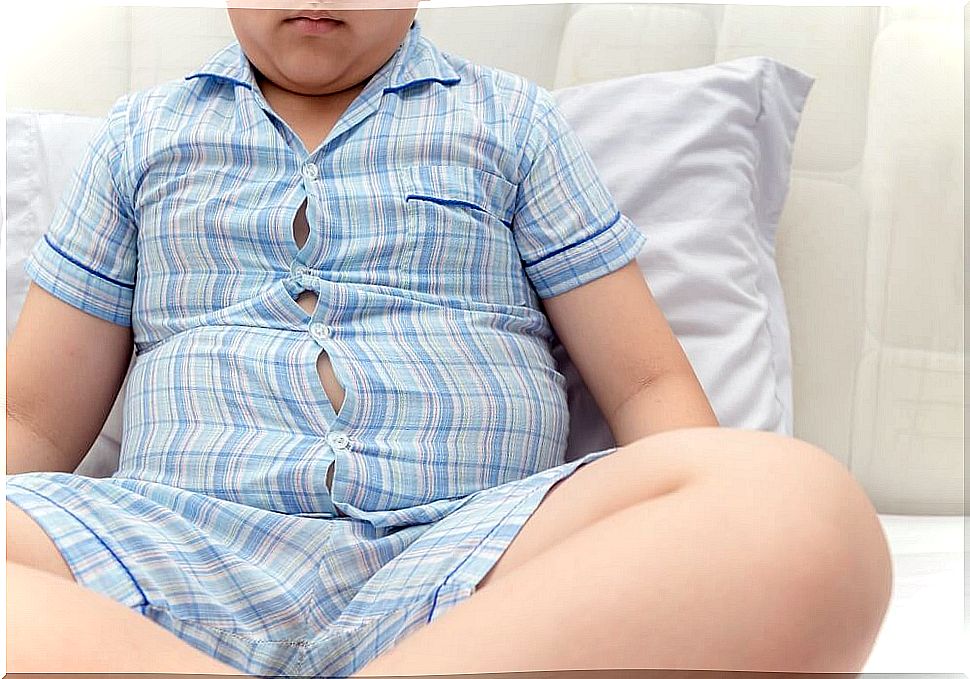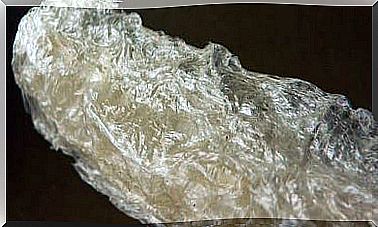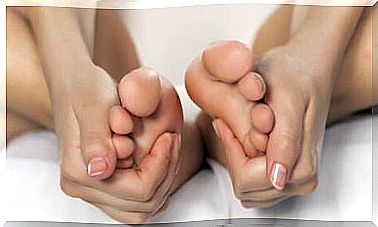8 Diseases Related To Childhood Obesity
Did you know that childhood obesity can be the trigger for other diseases? Beyond affecting the self-esteem of minors, it affects another variety of pathologies that can affect their quality of life.

20% of Spanish children suffer from obesity, according to data from the Regional Office of the World Health Organization (WHO) published in RTVE. Now, beyond being overweight, did you know that there are many diseases related to childhood obesity?
Read on to find out how obesity can affect your child’s health, in different ways and with varying degrees of severity. Grab a pen and paper and take notes.
Childhood obesity in the world
The WHO has warned for several years of the high prevalence of childhood obesity throughout the world. In fact, it has been listed as one of the main public health problems of the current century. Now, what exactly is childhood obesity?
It is an accumulation of excessive fat in the body, that is to say that the child weighs much more than the weight considered healthy for his age and height. If you suspect that your child is overweight or even obese, consult your pediatrician to carry out an examination of the child.
Diseases related to childhood obesity
Beyond aesthetics, the accumulation of fat can give children illnesses that were considered “adult” in the past. Next we will tell you what problems can affect obese children.
1. Type 2 diabetes
Type 2 diabetes is a type of diabetes that is acquired, that is, it is not congenital. Every time we eat food, the pancreas releases insulin to separate glucose from ingested sugars and thus allow the cells to nourish.
The problem occurs when excess food demands extra work from the pancreas. Over time, it can happen that the insulin-producing cells die and then type 2 diabetes develops.
According to data from a study published in 2017 in the Journal of the Endocrine Society , there is a clear relationship between obesity and the incidence of type 2 diabetes in children.
2. High blood pressure
Various investigations have concluded that excess weight increases blood pressure, which can cause hypertension in children. This increased tension could lead to long-term cardiovascular problems, which is why a healthy and balanced diet is often recommended for weight loss, as well as an exercise plan.
3. High cholesterol
Plaque buildup in the arteries can lead to narrowing of the arteries. The biggest complication of this situation is that if the arteries become clogged, it could lead to a heart attack and even a stroke.
4. Self-esteem problems and depression
Children can be cruel: the bullying facts that appear in the newspapers every week are proof of this. An obese child can be the victim of all kinds of teasing that affect their self-esteem and, in the worst case, cause serious childhood depression.
5. Metabolic syndrome
This syndrome encompasses different health problems that affect the body in a holistic way. Children who suffer from it show hypertension, low good cholesterol, high triglycerides and even glucose intolerance. It is worth clarifying that intolerance can lead to type 2 diabetes over time.

6. Non-alcoholic fatty liver
Another disease related to childhood obesity is nonalcoholic fatty liver, a disease where fat accumulates slowly in the liver to the east it cannot process it properly. The main risk is that liver cell damage can occur.
7. Eating disorders
Childhood overweight and obesity can lead to low self-esteem, as we have already seen, and push the child towards anorexia or bulimia in a desperate attempt to lose weight.
8. Asthma
Some research indicates that the inflammatory processes produced by obesity could trigger asthma symptoms by disturbing the airways of children.
To keep in mind!
These are the main diseases related to childhood obesity, but they are not the only ones: sleep apnea and restless sleep patterns are two other possible complications of being overweight.
If you suspect that your child is over a healthy weight, do not hesitate and consult your pediatrician. He better than anyone will be able to diagnose it and give you guidelines for healthy eating and exercise for your little one.









